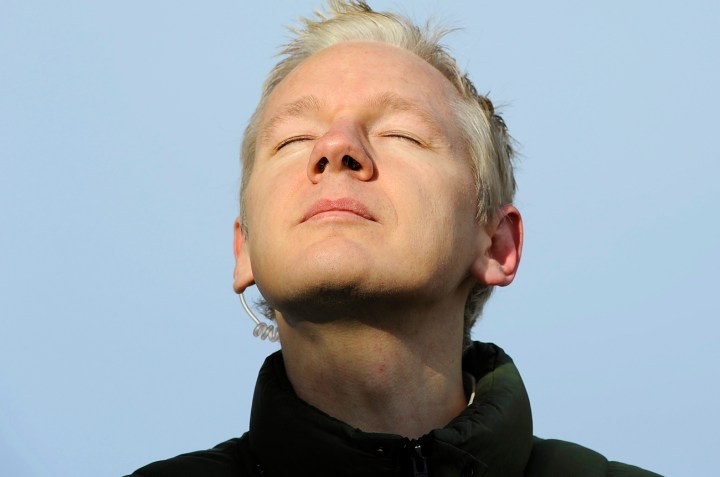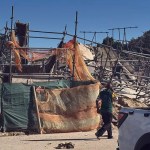The fledgling Media24 investigative journalism unit struck a rich vein of gold when it obtained a cache of unpublished cables about southern Africa that were originally leaked to WikiLeaks. The scoop is the latest in a growing number of headline stories broken by the Media24 unit and which have caused sleepless nights for those suddenly in the spotlight of its exposés. By SIPHO HLONGWANE.
The first of the privately obtained cables was published in The Witness on Wednesday, and details a meeting between Zimbabwean President Robert Mugabe, an official of his government, former US Ambassador to Zimbabwe James McGee and Democratic Congressman Donald Payne. Dated 2 June 2009, the meeting is called “Tea with Mugabe” and describes the Zimbabwean ruler as “possibly the healthiest 85-year-old in Zimbabwe”, “clearly stuck in the past” and “desperate to re-engage with the world and to be treated as an elder statesman”.
This is an enormous scoop for Media24, putting them on a par with publications such as The Guardian, Le Monde and Der Spiegel and other exclusive WikiLeaks media partners.
Andrew Trench, head of Media24’s investigative unit, said it took many weeks of phone calls and emails before they had the contact within WikiLeaks who could provide them with the cache of unpublished documents. “We obtained a substantial number of cables. There are roughly 1,900 cables which relate to South Africa, but we didn’t get the whole body of [the South African cables].”
Though it does not constitute an embargo as such, Trench said there was no indication when WikiLeaks would be releasing the cables themselves, but said it may be months as it appears the organisation is under enormous strain. Of a total of 251,287 cables the whistleblower site received, WikiLeaks has published 1,862 so far.
Responding to the news, spokeswoman for the US embassy, Elizabeth Kennedy Trudeau said they had contacted Media24 and anticipated responsible reporting. “They understand the sensitivity of redaction,” she said. She refused to confirm the cable already published by the Witness, saying, “We will never confirm, as a matter of policy, the veracity of stolen documents.”
Nic Dawes, editor of the Mail & Guardian, said he was rather envious of Media24’s success in obtaining the documents and looked forward to reading them. “Obviously, we would have liked to publish the cables ourselves,” he said. “But news is a competitive business and I won’t let jealousy get in the way of congratulating them. This will be grist to the mill for all of us.”
The Media24 investigative unit has been around for a year, said Trench. The team is still very small with five other journalists on the team besides himself, and plans to expand to six in January. The unit feeds investigative stories on a weekly basis to Media24 publications. Since Trench took over as head of the unit in September, they have reported on the mine grab by the ANC’s capital ventures arm, Chancellor House, Tony Yengeni’s continued involvement in business despite a court injunction barring him from doing so and the exposé of the charlatan Mandla Lamba, who falsely claimed to be South Africa’s youngest mining tycoon, with close ties to Cyril Ramaphosa and his wife Tshepo Motsepe.
Trench has a rich history of investigative reporting himself, having been the editor of the award-winning Daily Dispatch, which reported on stories such as the infant mortality scandal at the Frere Hospital in East London. He told The Daily Maverick he hoped that down the line his team would become one of the pre-eminent investigative reporting teams in the country.
“Down the line” may not be that far off for Trench and his team. After only a year in existence, they have managed to bring the sort of reporting that puts the fear of God into devious people, (and there’s plenty of choice there) and have obtained a cache of unpublished documents from WikiLeaks – something few other publications in the world have managed. The team is a serious contender among investigative reporters – perhaps at some time in the future even knocking on the door of the Mail & Guardian itself. People who do wrong are in for many sleepless nights. DM
Read more: The Witness, Andrew Trench’s behind-the-scenes blog.
Photo: WikiLeaks founder Julian Assange pauses as he speaks to the media outside Ellingham Hall, the home of his friend, journalist Vaughan Smith, in Norfolk, England December 17, 2010. Assange said on Friday that he and his organisation faced an aggressive investigation by U.S. authorities after the website released secret diplomatic cables. REUTERS/Paul Hackett.


















